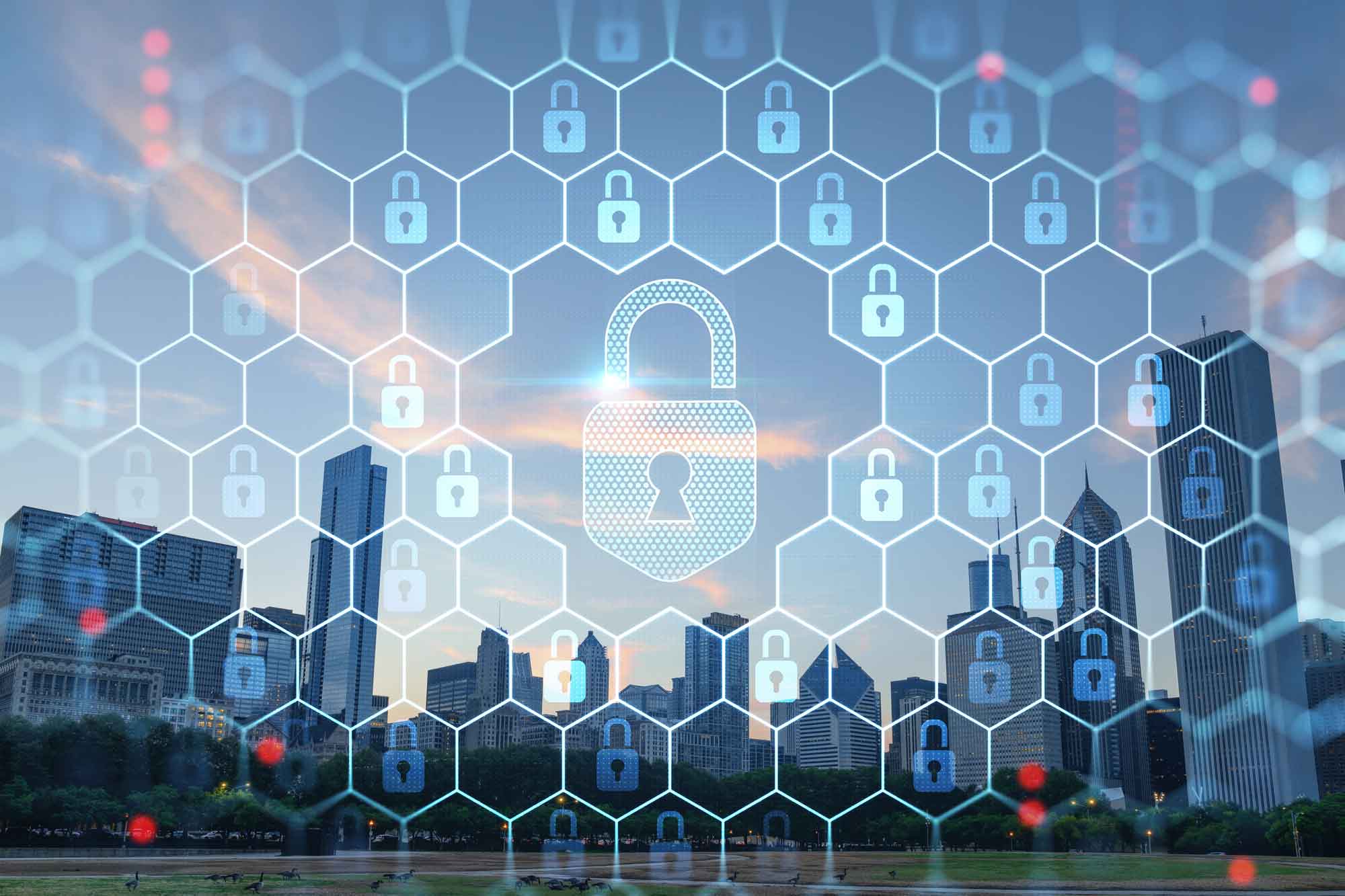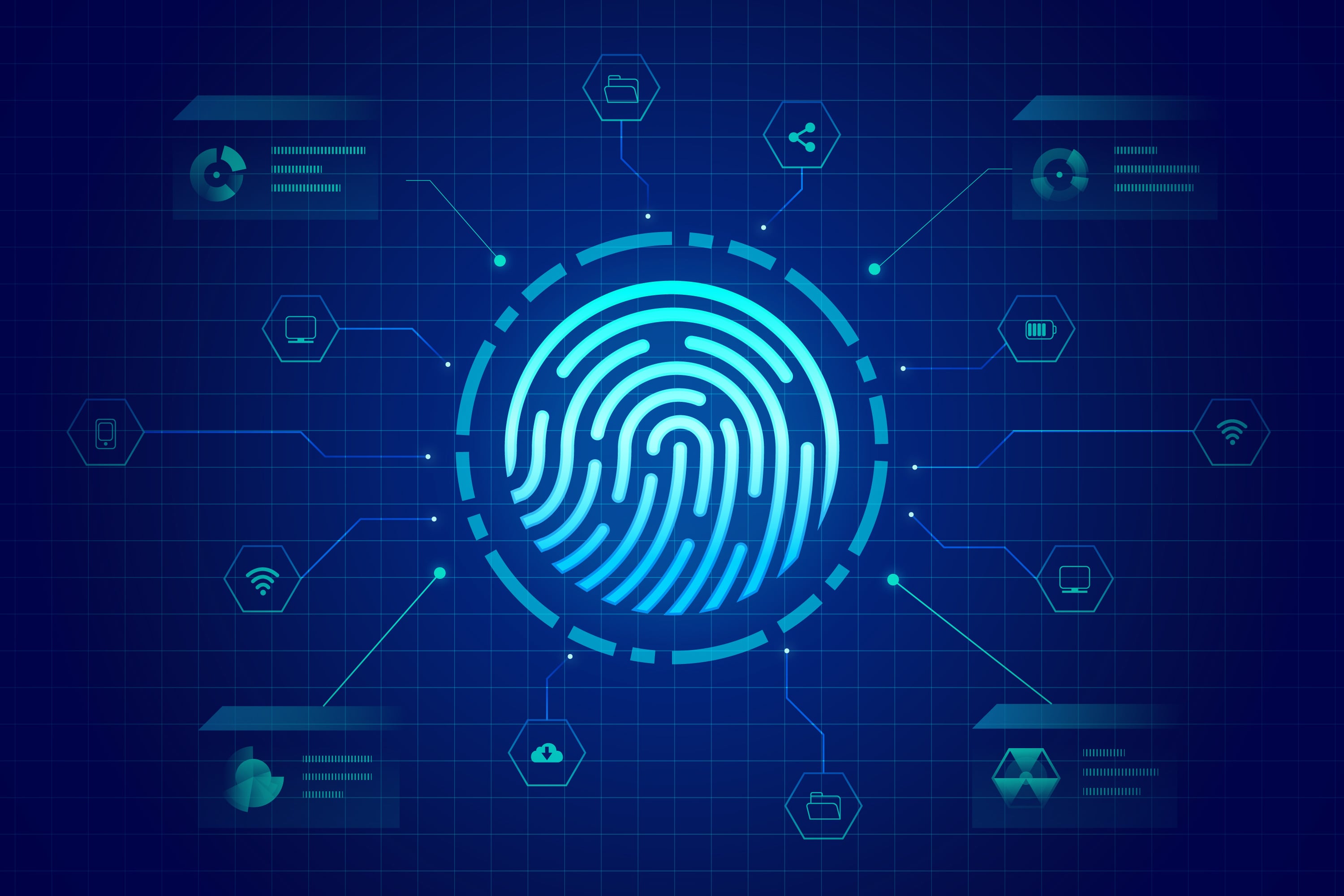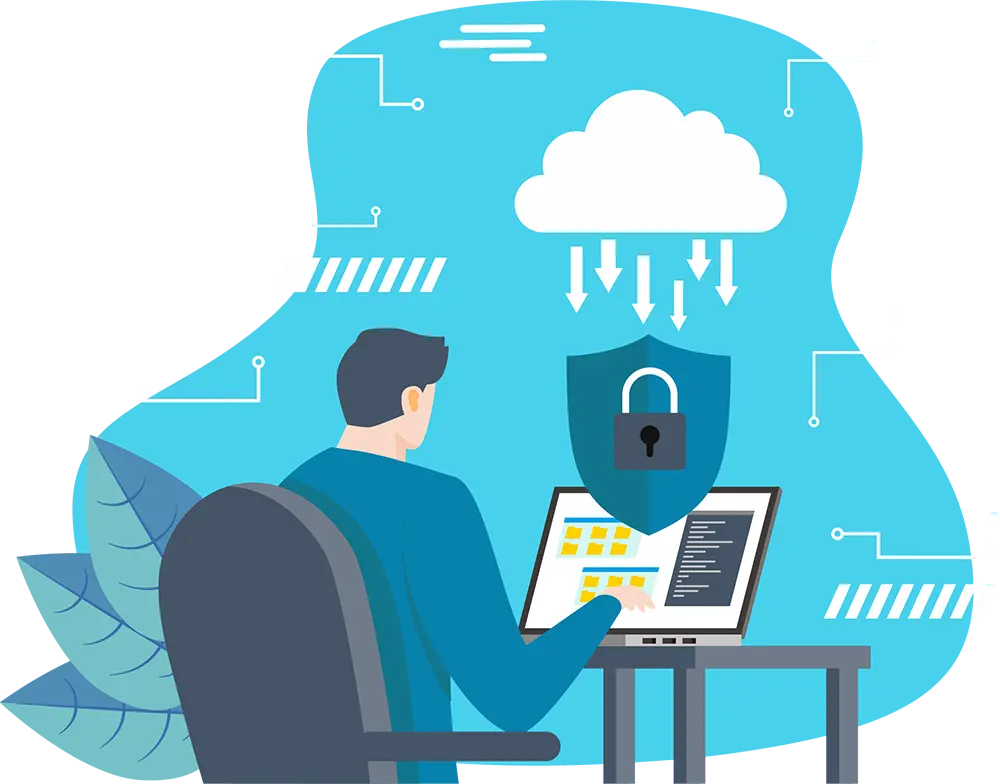“What is cyber security?”
This is a frequently asked question by those unaware of the digital world and all its mysterious dangers.
Cyber security is a critical component of a business's daily operations and helps protect them from possible risks and cyber threats. Investing in professional IT security services not only helps businesses safeguard their assets but also demonstrates a commitment to maintaining customer trust and reputation.
In this article, we’ll explore the basics of cyber security and everything needed to get started.
What is Cyber Security All About?
Cyber security is a technological practice aiming to defend devices, software, networks, and confidential data from cyber-related threats.
At its core, cyber security is about understanding how these malicious attackers operate and how best to protect against them. It involves a combination of technology-focused solutions, such as firewalls and encryption, and people-focused solutions, like policy enforcement and employee training. By taking these proactive measures, you can better defend yourself against cyber threats.
With a reliable cyber security strategy, you can implement an effective security defence against cyberattacks aiming to wreak havoc in your systems. This tool will also prevent incoming attacks that can cause operational disruptions to you and your customers.
Why You Need Cyber Security in Your Business
Cybersecurity is a necessity in the digital age. Remember that it only takes a few clicks to expose your business data which can result in tremendous damages from business disruptions to a damaged reputation. And that data can be customer, financial, or employee data.
It’s typical for businesses to transmit data between networks and devices. And your data must stay secure, whether in idle or transit, and only legit people can access it. And only with cyber security can you apply the necessary protection and security policy to maintain the integrity of your data.
An effective cyber security plan can help you protect your company’s valuable assets and digital information. With the proper cyber security measures, you can safeguard against data loss, financial losses, reputational damage and more. Furthermore, effective cyber security protocols will help ensure that your customers' personal information remains private and secure.
All in all, cyber security will effectively protect your business and customers from cyber criminals waiting to take advantage of your assets. And investing in the right tools and services to protect your network will provide you peace of mind and a competitive edge – allowing you to focus on what matters most – growing your business.
Types of Cyber Security You Need to Implement Now!
Various categories make up cyber security, and each has its own goal. Here are some of the common types of cyber security categories implemented on most networks:
Network security
Network security is a cyber security practice that involves protecting security networks from hackers, malware, or deliberate cyberattacks. It includes detecting potential threats, preventing access to unauthorised resources, implementing strategies to protect data, and responding quickly to incidents when they occur.
Network Security ensures that only authorised users can access a network or system's resources. It also helps safeguard personal information stored on a network by preventing hackers from accessing sensitive information like passwords or financial details. Using tools such as firewalls and anti-virus software, along with user authentication and encryption, can protect your networks from malicious attacks. Additionally, regularly monitoring user activities can help detect suspicious activities that may indicate a potential threat.

Application security
Application security is a practice that protects software and devices from cyber-related threats. It refers to measures that ensure all applications are secure from malicious software or attacks. This practice involves code reviews, coding guidelines, and vulnerability scanning tools to ensure applications are not vulnerable to risks like a data security breach or malware infiltration.
Application security also includes risk assessments that help identify potential issues before they can cause damage. By taking a proactive approach towards protecting applications from malicious threats, you can reduce your risk of exposure and maintain overall cyber safety.
When applications get compromised, hackers can access your data. And application security will prevent that from happening.
Information security
Information security is a practice that maintains data privacy.
At its core, information security is about safeguarding sensitive data by preventing unauthorised access to it. This involves implementing technical solutions such as firewalls or encryption, monitoring for suspicious activity, establishing policies amongst users, training personnel in cybersecurity best practices, and regularly assessing risk levels.
By taking these steps, you can ensure your valuable assets are adequately protected against potential threats.
Operational security
Operational security is all about understanding the environment in which you work and the threats to your data. With this knowledge comes the power to create a proactive strategy for protecting yourself against internal threats like espionage or external ones like hacking attempts.
This security practice includes procedures for safeguarding confidential data. It involves user access to networks and methods on how and where you store your data.
By taking steps such as strengthening user authentication protocols or investing in encryption technology, you can ensure that your data always remains safe and secure.
Disaster recovery
Disaster recovery allows your business to respond quickly and efficiently in the event of a disaster, such as an earthquake or flooding. Disaster recovery can help you get back up and running without restarting from scratch.
All businesses require disaster recovery to prepare in case of a cyber-attack or disaster. With the help of a disaster recovery policy, you have a concrete process for restoring your business operations and data to how it was before the disastrous event. This business continuity plan will be your saving grace when the time comes.
Remember that just because you haven’t gone through any cyber-related disaster yet, it doesn’t mean it won’t happen anytime soon. So better to be prepared. And to do that, you need to implement effective backup procedures to help ensure your data remains safe and accessible during difficult times.
Cyber security awareness
Not many companies know that employees are the most significant cyber security weaknesses. It only takes one click from an employee on a phishing email to release malware into your network and bring down your cyber security.
In today’s world, where technology plays an integral role, people must acknowledge the importance of protecting their digital identities, data and assets. Companies need to train employees about modern-day cyber attacks and how to stay safe online.
We must work together towards creating a safe online space by understanding how our surfing habits can have real-life repercussions. We need to be alert and aware of any new trends or threats in the cyber world so we can take preventative measures to protect ourselves from potential risks and attacks. Educating ourselves about cyber security awareness will help us stay secure and vigilant against potential threats.
Common Types of Cyber Threats
When it comes to cyber security, the threat landscape is vast and ever-evolving. And it’s getting harder to keep up with new threats, security technologies and trends because of it. Here are the most common types of cybersecurity threats you should watch out for:
Malware
Malware, short for malicious software, refers to computer viruses, worms, ransomware, spyware, and adware designed to damage your computer/network by gaining illegal access. There are various ways malware can infect your computer.
Malware can spread through emails, websites and downloads to gain access to personal information such as passwords, credit card numbers, and banking details. Malware also has the potential to disrupt network operations, delete files or encrypt data so that it's inaccessible until you pay a ransom.
Anti-virus tools are effective in detecting these malicious files. But on top of that, staying vigilant and ensuring you have the appropriate protection on your computer and mobile devices will go a long way.
Ransomware
Ransomware is malware designed to hold your data and systems for ransom. The criminals would threaten to delete or share your confidential data with the world unless you pay the ransom to the cybercriminals. So I guess it’s safe to say that ransomware is one of the most dangerous threats to your data security.
The consequences of ransomware can be devastating. It can lead to financial loss, data breaches, or even identity theft. Ransomware attacks typically target government agencies and companies in the healthcare and financial industries because of the substantial amount of confidential data they process.
The good news is that there are steps you can take to protect yourself from ransomware attacks.
Investing in a reliable cybersecurity solution with anti-ransomware capabilities is essential for keeping your data safe. Additionally, educate yourself and your employees on various types of ransomware and their attack vectors so that you are aware of any potential risks before they happen.
Ransomware prevention tips you need to know!
Phishing / social engineering
Phishing is a social engineering strategy designed to deceive users into disclosing sensitive information, such as login credentials and banking details. This scam can be through emails, chats, or text messages that pose as a person or business you know asking for your confidential information. By responding to these messages with personal information, unsuspecting victims can put their sensitive data at risk.
Phishing attacks have only grown throughout the years, and cases only started to rise at an alarming rate during the COVID-19 Pandemic when remote work is at its peak. With this in mind, understanding what phishing is and how to protect yourself from it is essential for staying safe online.
Learn more about phishing scams here
Distributed denial-of-service (DDoS) attacks
DDoS is a cyber-attack that targets a device or network and affects its availability to users temporarily or permanently. It overloads a network, website, or service with traffic, so it crashes and makes it unavailable to its intended users.
It is one of the most common and disruptive forms of cybercrime, as it can take down websites and disrupt businesses for extended periods.
The effects of DDoS attacks can be devastating to companies, causing revenue losses and brand damage. However, it is possible to protect against such attacks with a combination of practice security measures and rapid response techniques in place. Monitor your networks for malicious behaviour on an ongoing basis to detect any signs of a DDoS attack before it takes down their services or causes irreparable damage.
Man-in-the-middle attacks
Man-in-the-middle attacks are one of the most dangerous cyber security threats out there. It is a cyber-attack that intercepts and relays conversations between two parties creating the illusion that they are talking to each other, waiting for the right moment to steal confidential data.
MIM attacks steal sensitive data, such as usernames and passwords, financial information and even personal photos. A man-in-the-middle attack happens in various ways; however, the most common method is through Wi-Fi networks that are not password-protected or encrypted.
Ensure your Wi-Fi network is secure and updated with encryption enabled. Never access public networks without a VPN, and enable two-factor authentication when possible to prevent MIM attacks.
Cyber Safety Tips: How to Protect Your Business from Cyber Attacks
Whether you're a small business or a large corporation, take cyber safety tips seriously to ensure your data's safety. Here are some vital steps that you can take to protect yourself and your business from potential cyber threats.
Keep software up-to-date
Cyber attacks are becoming increasingly sophisticated, so outdated software may not be able to protect against the latest threats. By regularly updating your software, you can ensure that it has the latest features and patches that will help protect your data from malicious attackers. Additionally, running outdated or unsupported software can leave your systems vulnerable to hackers who exploit known vulnerabilities in out-of-date programs.
Be cautious of suspicious emails & phishing scams
One of the most common methods for attackers to gain access to sensitive information is phishing emails and scams. It is critical to be aware of the potential risks and take the necessary steps against them.
Phishing emails can look like they are coming from a legitimate source, such as a bank or government agency, but contain malicious links that can give hackers access to confidential data once clicked on. Businesses of all sizes need to be vigilant with emails and ensure employees know how to identify suspicious emails and report them accordingly.
Encrypt your data
Implementing encryption into your cyber security policies will help maintain data confidentiality whether your information is stored or in transit.
Data encryption is one of the best ways to protect digital information from cyber threats. It is an effective way to keep your data secure and ensure that it remains in the hands of only those who are supposed to have access.
Encryption is a valuable tool for anyone looking to safeguard their personal or business information from unauthorised use. This process can help prevent malicious actors from stealing or manipulating it.

Use Antivirus software
Anti-virus software is a vital tool for any company that deals with sensitive customer data or handles other digital information. Not only can this software help identify and remove malicious viruses, but it can also proactively block potential threats before they cause any damage.
Anti-virus software works by scanning all incoming and outgoing files regularly, allowing it to detect and eliminate malicious content before it has a chance to infect your computer systems. Additionally, some anti-virus packages include features such as firewall protection, parental controls, and identity theft prevention tools which provide further peace of mind for businesses dealing with sensitive data.
Best anti-virus applications for SMBs
Implement data backup
If your business operations rely heavily on technology, having a reliable backup strategy will protect you from potential cyber security threats and disasters that might come your way.
How so?
Implement data backup.
Data backup will surely save you from cases like ransomware, which can damage your business if you don’t have a backup of your files somewhere (locally or in the cloud) to use for recovery.
When implementing backups, identify which systems and devices need backing up, then consider how often backups should occur and where to store those backups, although cloud storage is a popular choice among businesses and individuals since it ensures safety outside the local office environment. Then, create policies and procedures for accessing and recovering backed-up files during an emergency.
Backup questions you need to ask your IT support team
Use strong passwords and two-factor authentication
Using strong passwords and two-factor authentication will help to shield your business from malicious attacks by creating an extra layer of security.
When it comes to passwords, opt for length over complexity. Longer passwords are much more strenuous for hackers to guess or crack using automated tools than shorter ones with complicated characters. If a password is too brief, it may be easy for a hacker to guess or crack quickly. If it’s too complex, you might forget it yourself! Ensure your staff members also use long and unique passwords across multiple accounts.
Two-factor authentication (2FA) is another significant way to protect your business from cyber-attacks. It adds an extra layer of security by requiring two pieces of information before granting access to an account or system. This additional layer of protection makes it much harder for hackers to gain access, helping businesses protect sensitive data and valuable resources.
Secure your accounts with these password tips!
Use a password manager
We at OSIT recommend our clients use long and unique passwords for every one of their online accounts. But that can be too hard to remember, especially if you have numerous professional and personal accounts. But there’s a way to solve this dilemma, and that's with the help of a password manager.
A password manager is an application that stores all your passwords in a secure and encrypted database and is accessible with only one master password.
So instead of remembering tens of passwords, you only need to remember the credentials to your password manager, and you'll have access to all your passwords in no time. Aside from having one centralised place for all your passwords, you can use additional features like two-factor authentication (2FA) and auto-fill options to enhance security measures when logging in online.
Participate in cyber security awareness training
No matter how strong your cyber security strategy is, as long as your employees are not informed enough about online risks and threats, you are still vulnerable to them.
One of the best ways to prevent that is with user education. We can conduct bi-annual cyber security awareness training for all your employees, especially if they handle ultra-sensitive information like patient records and banking information.
Conducting cyber security awareness training can give you and your employees the knowledge and tools to stay safe online. Although identifying potential threats and knowing a fundamental data protection strategy is a basic essential, it goes a long way in keeping your accounts and data secure from hackers.
Save your seat for our next Security Awareness Webinar!
Is cyber security worth it?
When it comes to the question "is cyber security worth it?", the answer is an unequivocal yes.
The truth is that no one wants to think about their data and information being vulnerable. And cyber security should be a top priority for any business or individual.
Cyber security helps protect against malicious actors like hackers and scammers trying to steal sensitive information or penetrate private networks. By having adequate cyber security measures in place, organisations and individuals can prevent their data from falling into the wrong hands and protect themselves from financial losses and reputational damage.
At its core, implementing cyber security serves as an investment in peace of mind. Keeping your data secure means knowing it’s safe from malicious activity and giving you greater confidence when using online services.
Want to turn your business into a digital fortress with cyber security solutions?
Simply fill out the form below with your details, and we'll get back to you as soon as we can.
Frequently Asked Questions
What is cyber security in simple words?
Cyber security refers to the protection of computers, data, networks, and infrastructures from cyber attacks and disasters. Just as you would install locks, alarms, and surveillance cameras in your home to keep it safe from intruders, cyber security involves implementing protective measures to ensure your data remains secure from cyber criminals and malware.
What is the main purpose of cyber security?
Individuals and organisations implement cyber security to minimise their risk of falling victim to cyber attacks and disasters. An effective cyber security strategy encompasses multiple areas, including user practices, technologies, and policies designed specifically to protect devices and networks. In addition to safeguarding data, cyber security also protects services such as platforms and systems we use every day, so they remain secure from potential threats like unauthorised access.
Who needs cyber security?
Organisations of all shapes and sizes are encouraged to adopt strong cyber security measures to protect themselves and their customers from ever-evolving cyber threats. Sectors such as not-for-profit, healthcare, government, education, and finance are especially vulnerable, as they handle critical user data daily and are prime targets for crimes like identity theft.
Regardless of the size of your business or the industry you're in, it is essential to invest in a tailored cyber security strategy that incorporates up-to-date practices and fosters a culture of awareness and vigilance against evolving online threats.
Why is cyber security important in our life?
To protect your personal data from a wide range of cyber threats, cyber security is essential for maintaining the integrity, confidentiality, and availability of your information. Without it, you are deliberately putting yourself at risk of issues like phishing, malware, identity theft, and fraud, among others.












